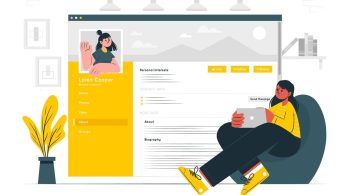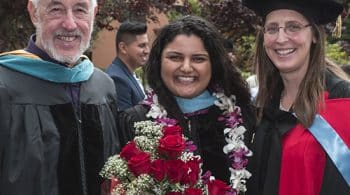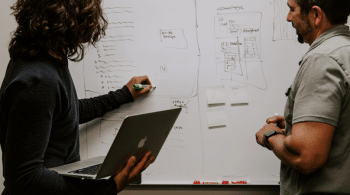Achieving excellence in software engineering requires a solid understanding of coding. From Python to R, many different coding languages exist. While the variety and complexity of languages might seem daunting at first, with a strategic plan and a commitment to improvement, it becomes more manageable for those learning to master diverse coding languages. It can even make for exciting exploration, and offer opportunities for software engineers to niche down and specialize.
In this article, we’ll delve into effective strategies for aspiring software engineers to master programming languages.
Master the basics
As with mastering any language, it pays to learn the basics first.
So, one should always begin by mastering the basics of programming, focusing on beginner-friendly languages like Python or C++. Gaining an overview of the various languages that exist, understanding their common applications and the projects they are most commonly used within, as well as knowing how they can be used together in combination, is an important foundation of knowledge for any aspiring software engineer. It is not necessary to master every language right away; a great starting point is to begin with one language at a time, aiming for a firm grip on two or three and a good, general overview of the rest.
Consider formal education
As budding software engineers progress, becoming more experienced in coding and the various programming languages that exist, they should consider enrolling in further, formal education to refine and master their skills. Baylor’s software engineering master’s program, for example, enables students not only to obtain formal qualifications that demonstrate their ability, but also to develop practical skills and learn how to apply coding knowledge through practical sessions and diverse courses, such as Applied Artificial Intelligence and Advanced Databases.
The program from Baylor aids budding software engineers in putting their skills into real-world practice, through a curriculum developed with the intention to enhance skills in diverse and lucrative areas of software engineering, and equip students with the skills necessary for a successful career.
Experiment with real and varied projects
Mastering any programming language is best achieved through hands-on projects. Software engineers need not wait for employment to test their skills, as coding is inherently practical. Aspiring engineers should leverage their learning journey by utilizing their coursework assignments as practical experience (if enrolled in a degree program), and undertaking extracurricular practice where possible, too.
For instance, individuals could start by mapping out a few coding projects of their own. Consider building basic apps, games, or tools using simple code — these projects do not have to be ready to take to market. They could be as simple as easy block puzzles or minimalist calculator apps.
These projects serve as valuable practice. The most important point to remember here is that all practice is good practice, and learning from your mistakes is a great way to improve your skills. Besides, the advice from seasoned engineers and programmers is clear: prioritize extensive practice before venturing into paid projects.
Make use of what is online
For those studying software engineering or programming, it is likely that they will already have access to a range of online resources they can use to play around with code. However, it also pays to keep an eye out for new resources that can be used to develop skills and practice coding in one’s spare time.
For example, budding software engineers could start practicing with code via an online ‘playground’ such as CodePen, which is free to join and arrives with a range of building and testing features. There are also plenty of experienced coders to follow on professional platforms like Linkedin, and podcasts and audiobooks that one can listen to for support while physically practicing skills.
Consider leveraging online resources and software for further practice and experience outside of the classroom; remember that practice makes perfect. Everyone will make mistakes when learning how to code, and that is a positive thing, as it builds your experience and problem-solving abilities. Debugging and troubleshooting are important parts of learning how to become a better engineer or programmer.
Read source code carefully
As one grows as a programmer and software engineer, they will learn that source code is a friend. Specifically, it is a great way to gain inspiration for building code and mastering programming languages is to dig into code that is already successfully written. Reading existing source code not only provides insight into what makes programs and applications successful, but also helps clarify how to solve complex problems.
As mentioned, much of the learning experience when mastering programming languages is about physical practice. However, the essential reading worth following takes place within existing code. Once someone knows how to read even the basic languages, they can start tapping into the best applications and taking serious tips.
Join a community
It is also a great idea for those who are interested in mastering programming languages to join online coding communities. Look for resources on Reddit, for example, where individuals of various skill levels; from novice coders to experienced programmers, can get together and share ideas, experiences and problems they may encounter.
Joining communities also helps software engineers learn from others’ mistakes, and helps find new projects and coding ideas. It can get a little lonely simply learning and practicing coding languages alone, so don’t be afraid to reach out for advice, make new friends, find mentors, and gain new inspiration along the way.
Keep practicing
If there is one thing that experienced software engineers and programmers recommend, it is that you should keep practicing.
Much like learning a spoken or written language, the more someone puts coding into practice, the more proficient they will become. Simply knowing the basics is great — but practicing makes sure one knows when and where you make mistakes, how to make changes, and what certain decisions do when it comes to broader projects and outcomes.
Whether software engineers choose to specialize in cloud hubbing and cybersecurity, or prefer to develop games and apps, mastering coding languages will open up a world of possibilities. And, as mentioned, enrolling on a professional degree program will help students learn more about how to practice and apply their skills to a lucrative career.






